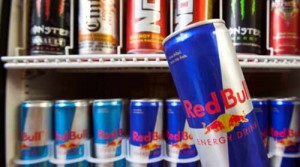
By: Viji Sundaram
(New America Media) BERKELEY, Calif. — The drumbeat of criticism against soda by health researchers and health care advocates in recent years has hurt soda sales nationwide, but the vast range of alternative sugary beverages targeted at youth — energy, sports, tea and fruit drinks — continues to fly off store shelves and vending machines because of “misleading health claims,” according to a UC Berkeley study out Wednesday.
Researchers at the school’s Atkins Center for Weight and Health studied 21 sugary drinks popular with young people that were touted by their manufacturers as enhancing “health and strength.” They concluded that the manufacturers were putting what researchers called a “health halo” over the beverages. The claims were not only false the beverages were harming children’s health, researchers said.
“Despite the positive connotation surrounding energy and sports drinks, these products are essentially sodas without the carbonation,” asserted the study’s lead author, Dr. Patricia Crawford, who co-founded and directs the Atkins Center. “Rather than promote health as claimed in advertising, these drinks are putting our children’s health at risk.”
“Under the guise of offering the public more choices, beverage manufacturers are using a ‘health halo’ to attract increasingly health-conscious consumers of all ages back to sugary drinks,” noted Dr. Harold Goldstein of the California Center for Public Health Advocacy, which commissioned the study. “Their health marketing claims are the 21st century equivalent of selling snake oil.”
Goldstein previously spearheaded statewide campaigns that helped the enactment of state laws removing soda and junk food from California schools.
Harmful additives
The drinks, researchers say, not only deliver “troublesome” levels of sugar and calories but the additives that are typically marketed as health- and performance-enhancing could do a great deal of harm to children’s health. Those additives include such ingredients as caffeine-rich guarana, ginseng, taurine, gingko biloba and ginger extract. Of those five, only ginger extract is classified as “likely safe” for children by both the National Institutes of Health’s National Center for Complementary and Alternative Medicine.
“The others are possibly safe for adults,” Crawford observed.
A worrisome factor is the synergistic effect of the additives, researchers say. Caffeine – the mainstay of many of these drinks — for instance, when blended with guarana, increases the physiological effects of the caffeine in the beverage.
Studies show that one cup of many energy drinks contain more caffeine than a cup of coffee. And because these energy drinks are cold and sweet – two appealing factors for a child’s palate — a child could over-consume them.
“There’s a medical risk of children drinking too much energy drinks,” Crawford said.
She said it’s paradoxical that parents go to great lengths to protect children by buckling them up in car seats and keeping plastic products out of reach, yet don’t think twice about letting them ingest sugary beverages.
She pointed out that study after study shows that even when you control for obesity, just one sugar-sweetened beverage puts a person at cardiovascular risk and doubles the risk for diabetes.
While Crawford acknowledges that the health impact of these additives has not been studied in children, when consumed in high quantities by adults they harm health.
“Businesses’ relentless pursuit of profit comes before the cost to health,” asserted Larry Cohen, executive director of the Oakland-based Prevention Institute, a non-profit dedicated to improving community health. “It’s clear we need stronger labeling and limits on marketing, as well as higher taxes on unhealthy foods.”
A bill introduced last month in the House by Rosa DeLauro, D-Conn., will tax sodas and other sugar-sweetened beverages. DeLauro hopes that the Sugar-Sweetened Beverages Tax (SWEET) Act, will curb the nation’s rising diabetes and obesity rates. This is the first time in five years that such a bill is under consideration in Washington, D.C.
DeLauro is reported as saying she is under no illusion about the chances that her SWEET Act will become law. She does not even expect the bill to come to a vote. But she wants to bring the debate to Washington, hoping it might help galvanize local efforts to levy similar taxes.





The non-alcoholic beverage industry offers a wide array of hydrating options, including low- and no-calorie beverages in smaller portion sizes. These products, which include sports drinks, water, ready-to-drink tea, and 100% juice, can be a part of a balanced, active life. Furthermore, despite attempts to demonize sugar-sweetened beverages, the fact remains that these products are not a unique risk factor for complex health conditions, such as obesity, which relates to myriad variables (i.e., genetics, overall diet, inactivity). Therefore, regulatory efforts rooted in the premise that taxing or banning sugar-sweetened beverages will somehow enhance health, are inaccurate and will only prove unproductive.
Importantly, energy drinks feature an advisory statement that make clear these products are not intended or recommended for children.In fact, energy drink makers go above and beyond what is required both in terms of publishing transparent labeling information, and in terms of marketing practices. For example, drink makers have voluntarily pledged not to sell or promote these products to K-12 schools. These, and other steps, demonstrate that the industry is doing its part to market energy drinks responsibly to the audiences for whom they are intended.
-American Beverage Association
Help support my petition to stop energy drink sales to children in Florida. Please pass along as well. We need at least 100 signatures…just need 30 more!
https://www.change.org/petitions/sen-bill-nelson-it-should-be-unlawful-for-anyone-under-the-age-of-18-years-old-to-consume-energy-drinks-due-to-short-and-long-term-health-effects-these-dangerous-stimulants-are-becoming-easily-accessible-each-day